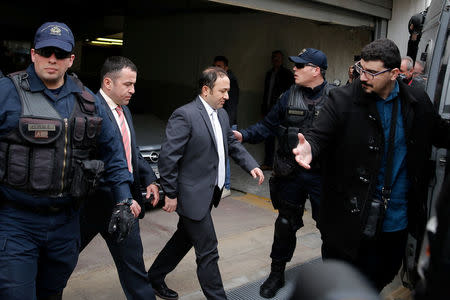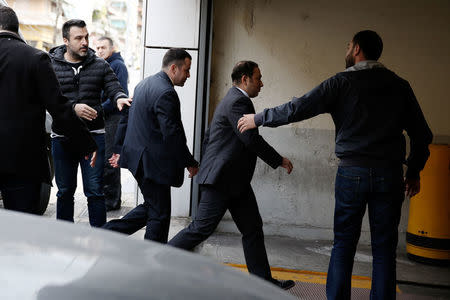Greek court rejects extradition of Turkish coup fugitives
By Constantinos Georgizas
ATHENS (Reuters) - A Greek court on Friday dismissed a Turkish demand for the handover of eight Turkish soldiers accused by Ankara of having played a direct role in the abortive coup against President Tayyip Erdogan in 2016.
It was the third request by Turkey to extradite the same eight suspects which Greek courts have rejected, an issue which has further strained frosty relations between the two NATO allies at odds over a host of issues from airspace to mineral rights in the Aegean Sea.
The court said it was not convinced the eight would face a fair trial in their country.
"Justice rose to the occasion and it is a day of joy for the eight of them," their lawyer Omiros Zelios told reporters.
The group - three majors, three captains and two sergeant majors - fled to Greece in a helicopter on July 16, 2016, as the coup attempt against Erdogan crumbled.
Turkey says they are traitors and coup plotters and has repeatedly demanded they be returned. Erdogan himself has addressed the issue several times, accusing Greece of reneging on a pledge to swiftly send them back.
The issue has posed a quandary for Athens, keen to keep relations with Ankara on an even keel but uncompromising that judicial decisions are independent.
That dilemma has come into even sharper focus since the arrest, on March 2, of two Greek soldiers who crossed the border into Turkey in bad weather. There has been no overt connection of the two issues, though plenty of speculation.
Appearing before the Athens-based Court of Appeal dressed in smart suits, the group were silent as they heard the verdict. They have been in protective custody since their arrival in Greece almost 18 months ago.
The eight face eight charges in Turkey ranging from involvement in the coup, attempted murder, participation in an armed terrorist group, military desertion and theft of military material.
But in its ruling, the court said the charges were vague and had introduced no new elements to overturn earlier rulings in favour of the eight. There is no limit to the number of times a country can request the extradition of the same suspects, but one of the grounds for having fresh requests considered is the introduction of new charges or evidence against defendants.
"In each case there are valid concerns of an unfair trial, and the risk of facing torture and humiliating behaviour," a court official said, citing the ruling.
(Writing by Michele Kambas; Editing by Peter Graff)

 Yahoo News
Yahoo News 








